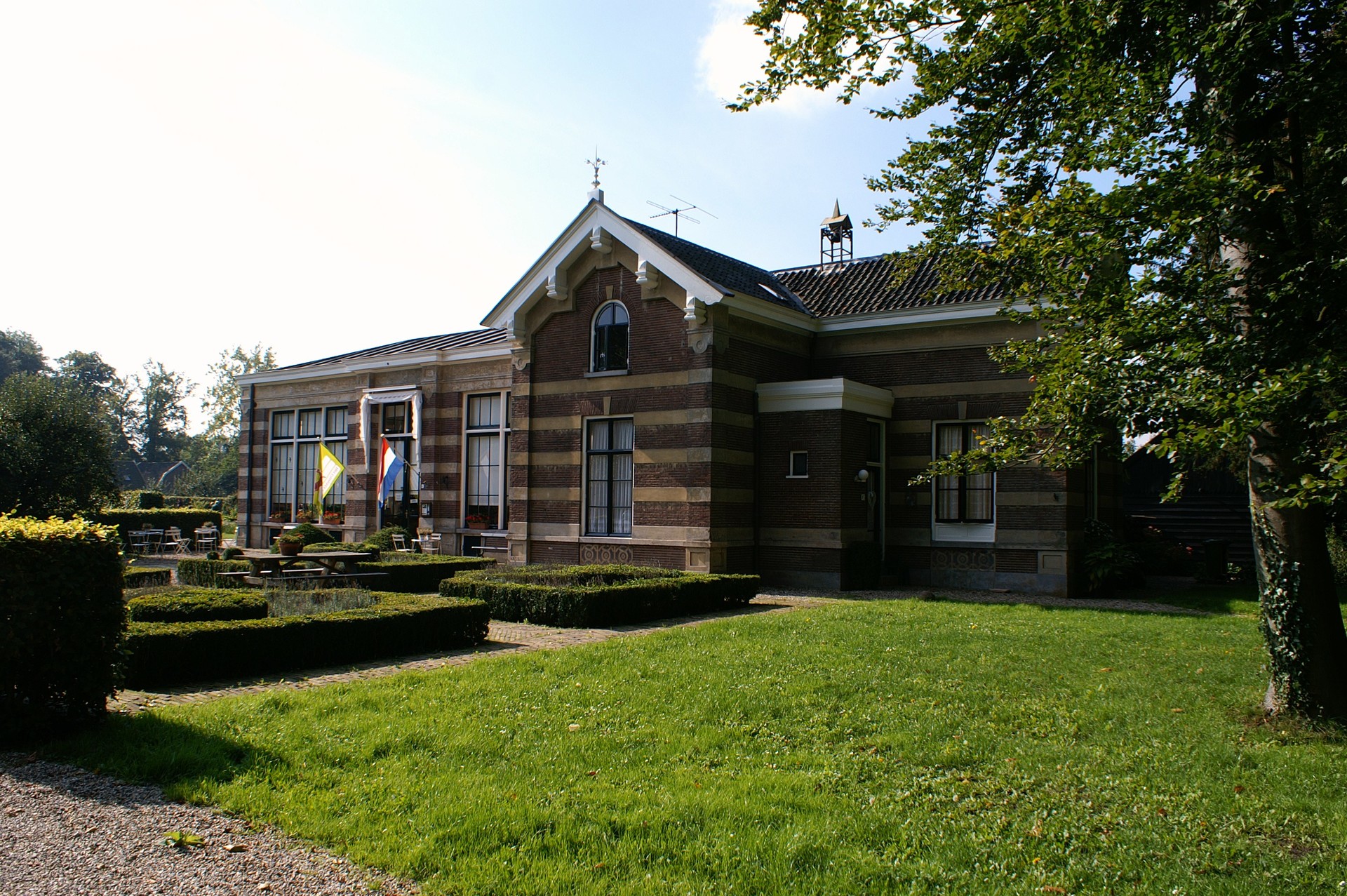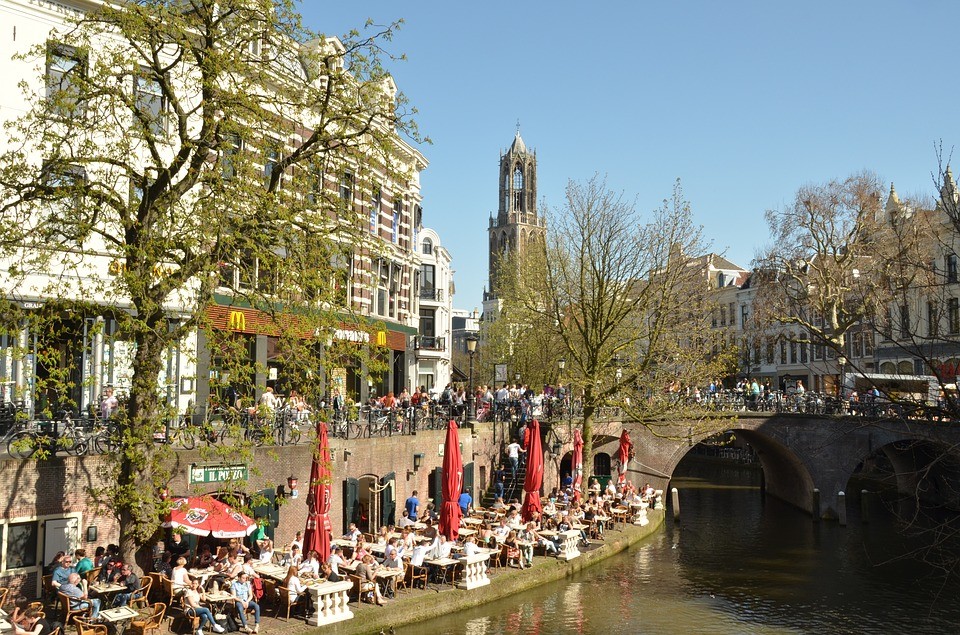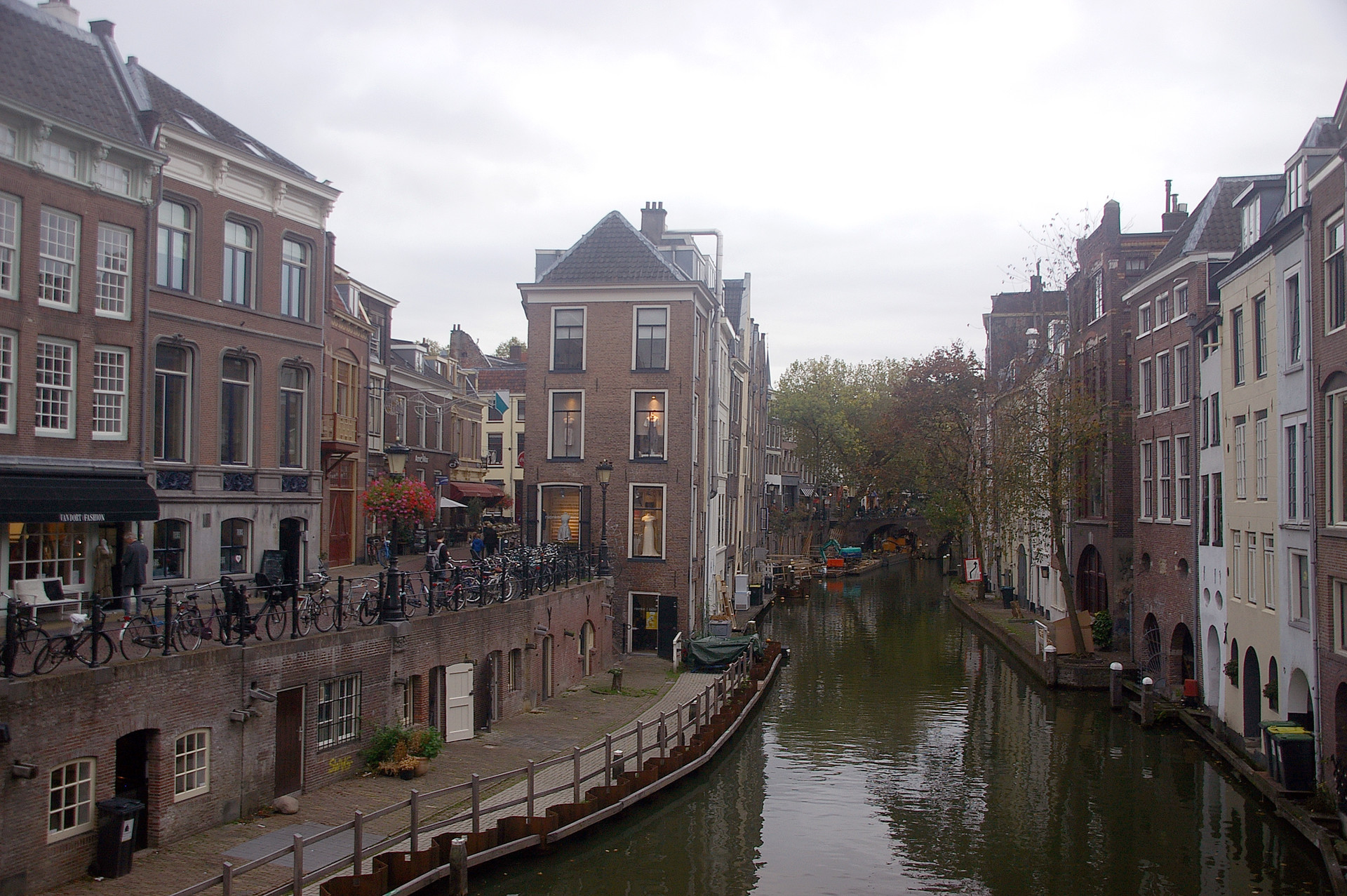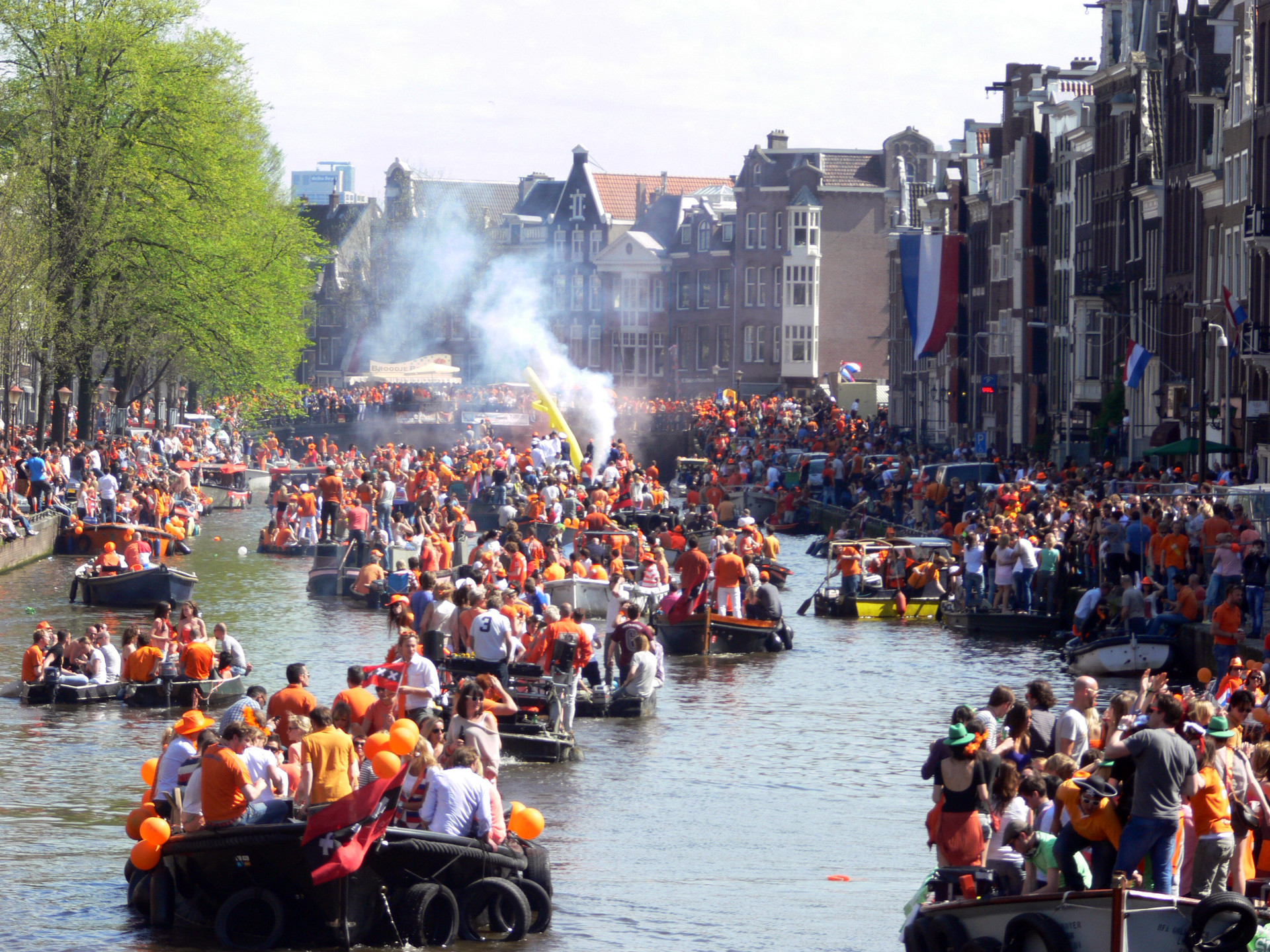Utrecht Part 2
Getting set up
This piece will pick up from our preparation article in “Utrecht Part 1”. To give this in brief, these series of articles will give you a foot up among your peers staying in Utrecht. These series of articles will explain how to enjoy Utrecht as an exchange student. It will be given in the perspective of somebody coming from warmer Australia although it will be able to serve everybody who is keen to choose the prestigious University of Utrecht as their host university of choice. As we had mentioned earlier, if you’re keen to make this city your new home, you will have to look for accommodation. After extensive research I have found that the majority of rent prices range between 300-500 Euros per month. It's easy to find places that are over and much more difficult finding something under three hundred euros. I somehow managed to find a place for 250 euros. It was a nine square metre room, but the amount of money saved I used up on travelling with great vigour. So, it was quite worth it. If you want to go into extensive detail as to how I found such a cheap place, then look into Utrecht Part 1.
To put it shortly I highly recommend you get on Kamernet. I would also recommend that you pay for a 14-16-day membership. With this membership you will be able to access the early-bird specials. I recall how it must have cost around 16 or so euros. Although, I ended up saving more than a hundred euros a month thanks to that small investment. So be smart and invest for a cheaper alternative. However, these are mostly luck and timing based. It also depends on how hard you want it. You will need to look into these websites on a daily basis as good deals tend to disappear quite fast.
So, let's move on from this and dive straight into the mess. Let’s assume you found a place to live. If you live within the city, then you’re pretty much in a decent position. However, if you live right outside the city like myself you will need to get to know your surroundings. I lived in the town of De Bilt at the time. This small charming town is very Dutch in the sense of architecture. There are many houses that can be found around. I had not spotted a single building in this area, so it feels like a proper old European town. If you end up living here, I recommend that you cycle or at least walk around in the area and check out what there is on offer.
De Bilt
The town is one predominantly filled with native residents. It's a quiet town that has a bit to offer. The bakeries around are absolutely delicious. There is one bakery located along the main roundabout of the town (hard to miss) which offers some amazing Dutch pastries. Many of those pastries are meat based so expect some juicy meals. Although, I would still go for regular non-meat pastries that you should try out as you could get a proper taste of the quality of the bread in these pastries. While we’re at it, try one of the many 'broods' that they have on offer. The Dutch, along with the Germans make some significantly great tasting bread of many different varieties of which reputation is not well known outside Europe. It was great to have some proper tasting bread. I got sick of uninteresting square bread a very long time ago.

If you want to enjoy the great breads on offer, then you will have to mix it with one of the many world-renowned cheeses that they have on offer. Often not on supermarkets but in many different cheese stores around Utrecht you will find massive cheese wheels on offer with foods of all types. I cannot emphasise how good the cheese is here, and I do recommend to at least try a new cheese every week or if you’re a proper cheese lover then grab a new cheese once every few weeks. The stores honestly have so much to offer that you will not have at home. It was always an adventure finding new things to try out that I did not have back home. Also, as an Australian it was a relief to have so many good foods for so cheap. So many of these foods were way too expensive for students back in Australia but here I felt much healthier. My palate and nutrition intake were wider and healthier here. That is without a single doubt.
Another thing that would excite fellow Aussies is the fact that supermarkets sell alcohol. They also sell a wide variety of local beers and act well as a bottle shop. Even better, you will find a couple of supermarkets in De Bilt. Apparently, they have more than a couple although I never discovered that there was an Aldi there (after doing some research now). Regardless, I mostly went to Dirk and Herenweg. Each one has its own pros and cons. Dirk is a cheaper alternative with much cheaper products. This ranges from foods to alcohols. Even for alcohol I managed to find a slag (24 cans) of beer for the equivalent of 9 AUD (6 euros). That was an incredible price as that is the price of our average pint of beer back in Australia (drink responsibly!). Either way, both are within walkable distances unless you’re further up the town into Bilthoven. It's pretty close and you could cycle anywhere within the town in almost no time. While we’re at it, apparently there is a ‘coffee shop’ (the name given to weed shops in the Netherlands) that offer everything your cravings or experimentation needs. I’ve only passed there once by bike when I noticed the sign in the outside. I was not a big fan of smoking, so I didn’t make the constant visits many students would. Rather, I enjoyed myself more eating all the great different foods that the Netherlands had to offer to get my highs.
The town, like many other towns has its fair share of bike stores. If you ever buy a bike from here make sure to watch out for all the ‘recommended repairs needed’ after you buy them. Many of the bikes would run properly without ‘modifications’ which would raise the cost of the bikes. There are quite a few rip-offs that are very unnecessary. So, watch out for these types of market pitches. Just because they know more about bikes than you would they would use this as an advantage to use the ‘trust me’ strategy to replace many optional features. You’ll need to go to reputable bike repair shops that will give you honest suggestions for your bike.
An example of a situation that will explain my point is one that happened to me while I was there. I had been cycling with a grocery bag on my handlebar. Now, I didn’t really cycle much for several years so I was not aware that this was a big no-no. As I was cycling and slowing down to park my bike the bag swung into the front of my wheel. This ended in the bike almost flipping and coming down hard. Luckily, I came out completely unscathed although the same can’t be said about my bike. So, without much aid I decided to head over to one of the bike repairing shops in De Bilt. Let's say that he offered repairs way above the price of the bike itself. I decided to instead go to a bike store with high ratings on Google Maps. This ended up costing a third of what was offered. I then decided to get my newly fixed bike to the other bike store in De Bilt for some last second changes. He offered a plethora of problems with my bike. Even though it cycled perfectly and was actually in a better condition than when I first bought it. I ignored the guy and enjoyed the full usage of my bike for the rest of the semester.
So, use proper common sense and you shouldn’t be swindled. Now, let's investigate the city itself. As Amsterdam, Utrecht is a city completely filled with canals. These canals are pretty to pass by although the water isn’t exactly the cleanest around. However, some people (mostly tourists) either swim in it or take a rowboat with several other friends. It's always enjoyable to simply chill by one as it provides a very calming and aesthetically pleasing scene. However, it helps make the city quite humid and even colder during the winter days. These canals criss cross through the whole area of the city so it's quite hard to miss them if you’re doing a scenic look-around in the city. While we’re at it, let's talk about the look of the city. Firstly, if you notice in the map there will be an inner city surrounded by canals (the old city) with the surrounding area stretching out with a more modern look to it.
Utrecht’s interior
The inner city is pretty much where all the rich and nobles used to live. If you walk casually through the area you will see how well designed the area is. The houses really look like something fit for the individuals in the higher echelons of society. It really felt majestic walking down these cobblestone roads with these houses stretching on either side of you. Once you pass the river area that surrounds the inner city you would go to the more stretched out areas. That is to say, the houses are much larger and the parks much more extensive. It's quite easy to imagine how the bridges back in the day were covered with guard posts and guards who would allow certain individuals and not others. Right now, it's simply open bridges with whomever having the ability to go in and out. It truly was a fun experience to think about as the history truly seeped from every corner of the area. It very much felt like being thrown hundreds of years into the past.

One of the nicest things about the Netherlands and specifically the city I was staying at is that the majority of the population spoke English almost fluently. It was quite interesting how much emphasise the government puts into English learning. Throughout my whole semester exchange there I only had issue with one old lady in a fruit shop who could not speak any English at all, but we managed to communicate by pointing and facial expressions. It worked out pretty well and I managed to get what I needed in groceries. So, if you are ever worried about settling in due to the lack of communication or having to worry about learning the language then fear no more. However, the Dutch language is not the easiest one to learn. It was a mix of German at a higher pitch.
The throat movement was quite strange when trying to speak the language and it was a struggle even for me. As in Arabic we have to use quite a bit of your throat to create rougher sounds. Although, in Dutch you have to use the upper part of your vocal cords which is a bit of a struggle for me. I recall how many of my Dutch mates and German mates would joke around with each other. It was easier for the Dutch to understand the Germans than the other way around. Not sure if that applies to most people from those two countries but my mates made it a running joke. I am slightly saddened I never properly tried to learn the language. It’s truly a language that should be learned thoroughly in the classroom. I should have done language courses separate from the university. But alas, regrets make for better decisions in the future if you're prudent enough. I would definitely learn from my mistake and rectify it in my future exchange.
Regardless, let's talk about the city a bit more. There are still a couple of tiny parks where you can enjoy a breath of fresh air in the city. The inner city is mostly filled with bikes rather than cars due to how narrow many of the roads are that many people choose not to drive to work but rather cycle there. It's pretty safe to cycle around as there are roads allocated simply for cyclers which are most of the time outside of the regular road. You also won’t need to wear a helmet. However, it's fully up to you if you’re wearing a helmet or not. Preferably you would for safety reasons. Anyway, when you make it through the north-eastern bridge and cycle through the same road you should eventually face the University to your left.

The university courtyard is large. In the centre there is an underground entrance where you could safely store your bike. If you cycle further down the road right before a canal you could turn a left. This would lead to the entrance to the university. It's one of the main entrances. The University has a few buildings throughout the city. It's all part of the same campus. There is another campus although that's a topic we will touch later on. The great thing that's worth noting about the University is that it used to be a castle. The library in specific was part of the royal castle that the royal family used to inhabit. It's quite interesting as well how in the past Spain was in control of the Netherlands under the Spanish crown. This had influenced the Netherlands architecture to some extent.
Another interesting part about the Dutch royal family is that they are well known for their ‘everyday’ activities. For example, there are many popular photos of the King of the Netherlands cycling to work. Now, either he actually does this often or it's an amazing PR stunt as everybody cycles around in the Netherlands. For a King to do so this would make his ratings shoot straight through the roof as people would relate to a king who is part of the most common national activity.
Kings day
A celebration you have to look out for if you’re doing the Dutch exchange semester during the January semester is Kings day. On the 27th of April you will see the world explode. The streets will be littered with beers and the colour orange. Many will be out celebrating the Kings day to enjoy beers with friends. You will have many flea markets opened everywhere. You could shop for all types of clothes, knick knacks and foods. I recall how I stuffed myself sick with some Turkish sweets. The streets were also filled with people from all nationalities. In different parts of the cities you would have local bands performing cover songs or Dutch songs well known by the population. The exchange students (including myself) were in awe of how alive the city had been. Many of us had not seen the hype coming for this specific day. The Dutch (in my experience) never came off as very nationalistic. I reckon that the holiday itself is not nationalistic per se but a day where the Dutch celebrate their combined identity together through food, alcohol and music.

It was a thoroughly enjoyable experience which I recommend you try out even if you’re looking outside the Netherlands. If you find yourself in Belgium, France or the UK then I highly recommend you make your way to the Netherlands for this specific day. I don’t recommend that you spend a couple of hundred dollars simply to get to and from the Netherlands although I would instead recommend taking a Flixbus.
Flixbus is one of the cheapest ways to get around. It's a bus service that is mostly based in central and western Europe. You could either book online or through the website (the prices vary from one and the other, so I recommend you look them up on both). You could get some really cheap deals to travel from country to country. Or, you could travel from city to city if you’re keen to save money on trains. I recall how I took a Flixbus from Utrecht to Hamburg, stayed there for some time then moved to Berlin and then to Prague for a few days. It was honestly a great budget deal. It was a great feeling to have more disposable income to spend either on the trip itself or save up for another trip.
This concludes this piece for now. We have discovered a few tips and tricks including a bit of history of the city of Utrecht and some things that make it unique to many other cities around the world. In the next piece will further delve into the culture, history and more importantly (for some) the entertainment we can enjoy from this city. We will look into mostly bars, restaurants, coffee shops and more history of the area. It can be truly said that you only learn about a city’s history once you’ve walked on many of its streets rather than simply it's monuments. During my stay I would often walk to different parts of the city to meet mates or simply explore, and I would find some spectacular places and some other hidden gems. So, I highly recommend that you read this series from the beginning if you find yourself heading over to Utrecht (or another Dutch city as the weather and lifestyle is very similar) for a semesters exchange or simply a visit. Make sure to pack an umbrella! Happy adventuring!
Photo gallery
Content available in other languages
- Español: Utrecht - Parte 2
Want to have your own Erasmus blog?
If you are experiencing living abroad, you're an avid traveller or want to promote the city where you live... create your own blog and share your adventures!
I want to create my Erasmus blog! →



















Comments (0 comments)